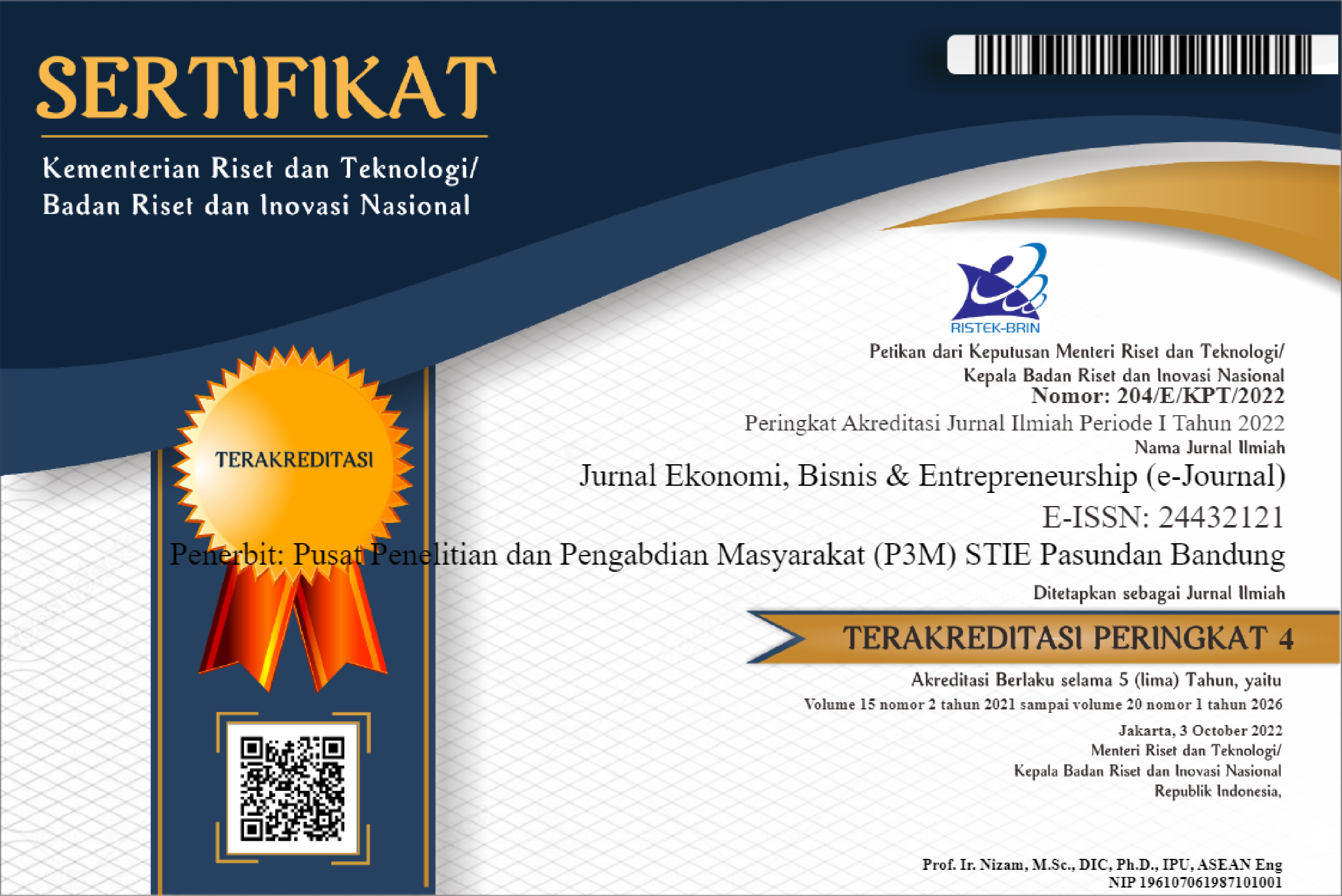Islamic Financial Performance Index: The role of Islamic Intellectual Capital
DOI:
https://doi.org/10.55208/jebe.v17i1.456Kata Kunci:
Financial performance, Profitability, Islamic Financial Performance Index, Islamic Intellectual CapitalAbstrak
This research is intended to analyze the influence of Islamic Intellectual Capital on the Islamic Financial Performance Index of Islamic Commercial Banks in Indonesia. The used method in this research is causality method. The data were analyzed through panel data regression. The results indicate the level of Islamic Intellectual Capital of Islamic Commercial Banks in Indonesia is high. Furthermore, the Islamic Financial Performance Index indicator with a very high level are Islamic Investment Ratio or Halal Investment and Islamic Income Ratio. The high-level indicator is Equitable Distribution Ratio. The moderate level indicator is Profit Sharing Ratio. The low-level indicator is the Directors-Employees welfare ratio. The very low-level indicator is the Zakat Performance Ratio. Generally, the financial performance of Islamic Commercial Banks in Indonesia based on the Islamic Financial Performance Index has a fairly high level. In addition, Islamic Intellectual Capital has a positive and significant influence on the Islamic Financial Performance Index of Islamic Commercial Banks in Indonesia. The condition shows if the quality of employees, technology, operational systems and good relations of Islamic banks and their partners are high, it will encourage Islamic banks to have high financial performance based on Islamic Financial Performance Index. This research is expected to provide benefits in relation to the measurement of financial performance based on the Islamic Financial Performance Index of Islamic Commercial Banks in Indonesia.
Unduhan
##submission.downloads##
Diterbitkan
Cara Mengutip
Terbitan
Bagian
Lisensi
Hak Cipta (c) 2023 A. Jajang W. Mahri

Artikel ini berlisensiCreative Commons Attribution-NonCommercial-ShareAlike 4.0 International License.








